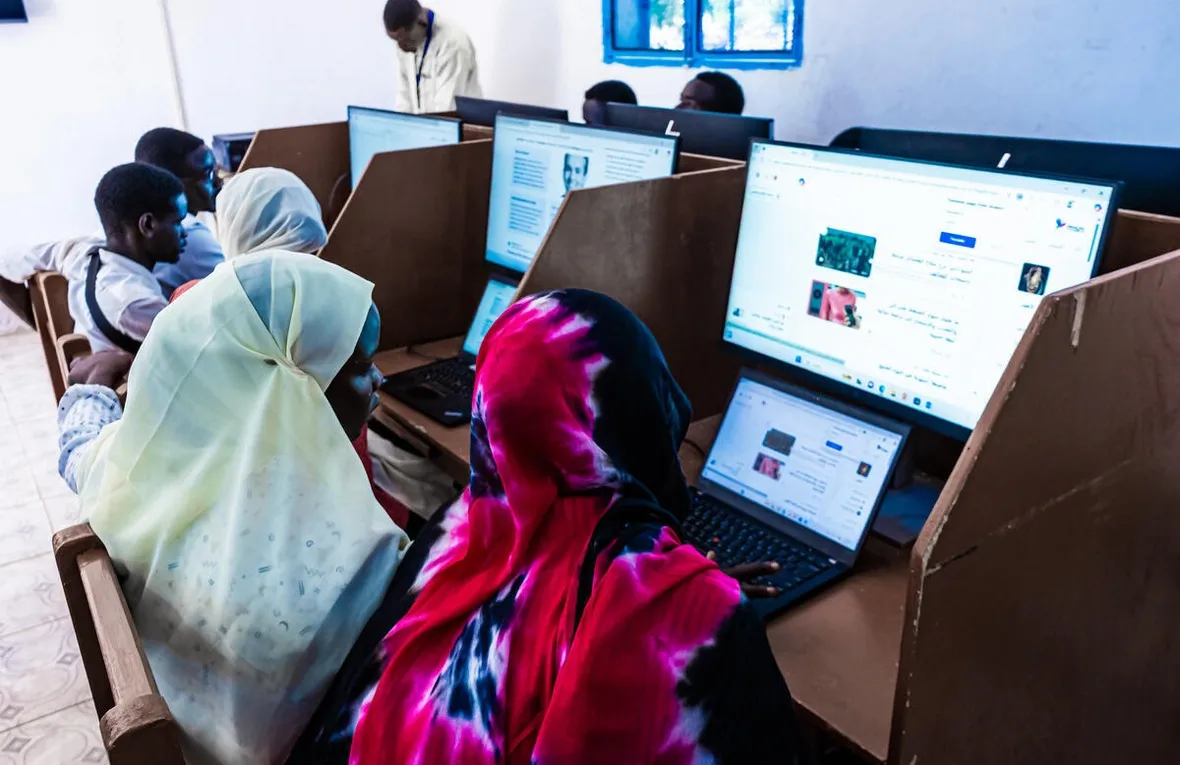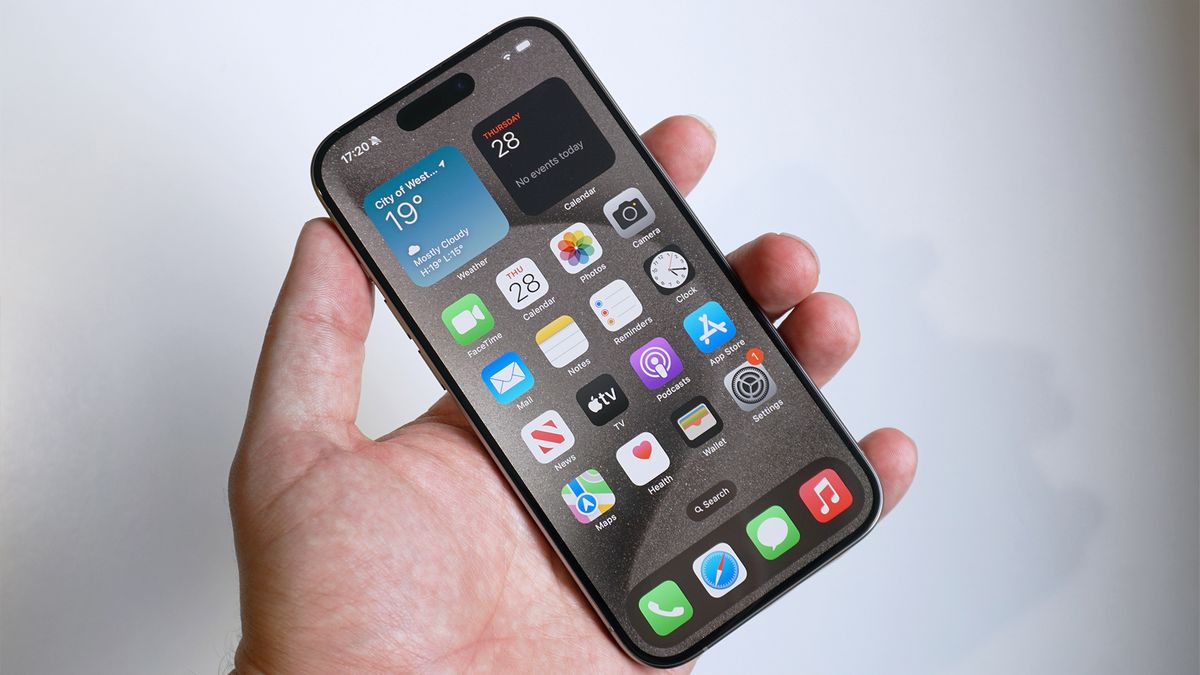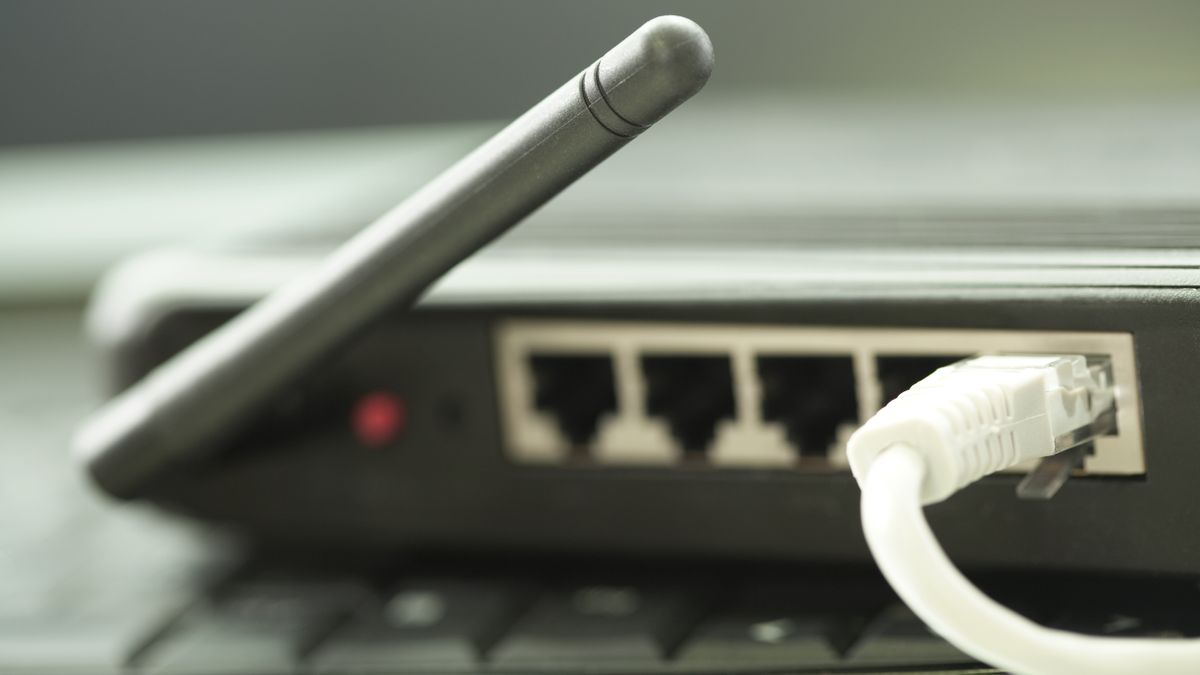N'DJAMENA – UNHCR, the UN Refugee Agency, and ITU, the UN agency for digital technologies, are expanding their efforts with partners in Chad and other countries hosting refugees to ensure that millions of forcibly displaced people and local communities are connected by 2030.
Concluding a two-day joint visit to Chad on Friday, ITU Secretary-General Doreen Bogdan-Martin, GSMA Mobile Development Foundation President John Giusti and UNHCR Deputy High Commissioner Kelly T. Clements saw first-hand how connectivity is transforming the lives of vulnerable communities. Across the country, Sudanese and Chadian refugees are using digital tools to access education, financial services and healthcare, taking steps toward greater stability and self-sufficiency.
While in Chad, the partners sought to consolidate the regulatory and infrastructure framework to expand the Connectivity for Refugees (CfR) initiative. Launched in 2023 during the Global Refugee Forum as a commitment to mobilize resources so that all major refugee hosting areas have available and affordable connectivity by 2030, it has evolved into an active public-private partnership in countries such as Chad, Ethiopia, Uganda, Mauritania, Egypt and Rwanda. Each program is tailored to local needs, mapping the communities most in need to expand connectivity.
“In Chad, we witnessed first-hand how connectivity can restore dignity and hope to displaced people and host communities,” said ITU's Bogdan-Martin. “The Connectivity for Refugees initiative opens doors to digital opportunities in places where internet connectivity is a lifeline, not a luxury. Now more than ever, we must act and expand that lifeline so that no one is left behind.”
“Too many people see refugees as passive victims, but we saw in Chad their drive to connect, learn and improve their lives and future prospects,” said UNHCR's Clements. “Our goal is ambitious: connecting 20 million forcibly displaced people and their hosts by 2030. We have changed course and are starting to get results that will help create resilient and inclusive communities. But we must keep pushing.”
Chad is home to around 1.5 million refugees, mainly Sudanese. His government is committed to digital inclusion through its development plan, Tchad Connexion 2030, which integrates the needs of refugees into broader digital infrastructure. Local mobile operators Airtel Chad and Moov have made infrastructure improvements to help connect the country's isolated east. Emergency.LU, a Luxembourg-funded public-private partnership enabling high-performance satellite connectivity, is being deployed in several locations in Chad. Four connected centers are being established in the settlements of Djabal, Farchana, Idrimi and Oure Cassoni, which will serve as learning centers for both Sudanese refugees and host communities.
UNHCR is calling on partners from all sectors to help scale up this work to meet the urgent needs of millions of people. This includes expanding infrastructure and removing regulatory barriers to individual access for displaced people. To achieve this, Refugee Connectivity is seeking at least $20 million in core support, with at least $200 million in direct investments and contributions.
Driving global efforts to bridge the digital divide, ITU works with telecommunications regulators and industry leaders to develop innovative digital solutions for underserved regions. Its Partner2Connect Digital Coalition has mobilized commitments from more than 70 governments, businesses and other organizations to unlock connectivity solutions for refugees, while its Disaster Connectivity Map provides critical data to guide interventions in crisis-affected regions like Chad.
The GSMA is a founding member of the Refugee Connectivity Initiative, which serves as a bridge between mobile network operators and humanitarian organizations. The GSMA's Giusti added: “Connectivity is often the first thing people ask for when crossing a border in search of safety. This unique partnership with UNHCR and ITU allows the GSMA to negotiate scalable and sustainable connectivity solutions to support forcibly displaced people and the communities that host them around the world.”
UNHCR is also deepening its engagement with development actors such as the World Bank and the International Finance Corporation (IFC), seeking to allocate portions of large-scale digital infrastructure projects to refugee-hosting areas.
Editor's Notes:
Media Contacts:
About UNHCR:
UNHCR, the UN Refugee Agency, is a global organization dedicated to saving lives, protecting rights and building a better future for people forced to flee their homes due to conflict and persecution. We lead international action to protect refugees, forcibly displaced communities and stateless people. Our vision is a world where every person forced to flee can build a better future.
About ITU:
The International Telecommunication Union (ITU) is the United Nations agency for digital technologies, driving innovation for people and the planet, with 194 Member States and more than 1,000 companies, universities, civil society and international and regional organizations. Founded in 1865, ITU coordinates the global use of radio spectrum and satellite orbits, sets international technology standards, drives universal connectivity and digital services, and helps ensure that everyone benefits from sustainable digital transformation, including the most remote communities. From artificial intelligence (AI) to quantum, from satellites and undersea cables to advanced mobile and wireless broadband networks, ITU is committed to connecting the world and beyond. More information: www.itu.int









